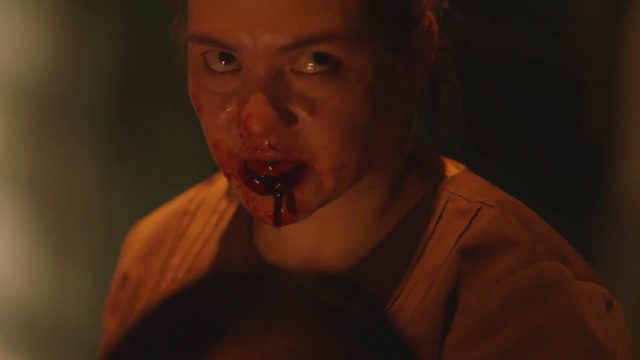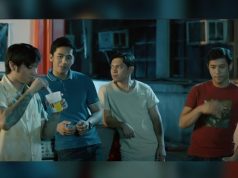I really want to like Kip Oebanda’s “Nay.” I love the story about the relationship between a yaya and the young man she practically raised as her own because of his absent parents. It’s a narrative that’s so rich as it raises questions about parenting and class conflict in the complex relationship between a nanny and her charge.
But it’s pushed even further when, early on, it is revealed that Nanay Luisa (Sylvia Sanchez) is also an aswang and reveals her true nature to Martin (Enchong Dee) when she saves his life from pancreatic cancer by turning him into an aswang as well.
The story is rife with themes that could be explored — from our relationships to our parents, the nature of monsters, the duality of people, survival, and even class politics — and while the film does dip into these narratives, it does so separately from each other.
The film begins well enough to establish the tight bond between Martin and Nanay Luisa and Martin’s cousin (who is also his boss), Francis (played by Jameson Blake). When Martin is diagnosed with pancreatic cancer, we see him fighting for his life but also giving up.
That’s when Nanay Luisa turns him into an aswang and the film shifts dramatically. The moment he discovers what she is, Martin is immediately disgusted with her and the loving and nurturing Nanay Luisa becomes a fierce, hard mentor, who insists on preparing him for his transition to his new life.
All the scenes that follow show him learning how to be a monster, including using his new abilities and hunting humans for food. In these scenes, Martin questions the morality of his choices — can’t he just eat bad people? Why must he eat innocents? — and Nanay Luisa is all of a sudden cruel and forceful. What happened to the love?
In other scenes, Martin tries to justify to Francis that she’s not completely evil and that he owes her his life. At his weakest and most vulnerable, Martin and his yaya share tender moments but they are immediately overturned by the training where their relationship is again completely strained.
These two stories, Martin’s training and the complex relationship of Martin and Nanay Luisa — would have been stronger had they been happening simultaneously within each scene. Moments of tenderness mixed in with the harsh reality of what she really is. Rather than separated, the themes and stories should have been intertwined to have any real dramatic stake.
As it plays out the way it does in the film, there’s very little question that he should stay away from her completely. There is no dilemma. There is no real choice.
It doesn’t help either that many of the scenes feel staged or blocked for the camera. The scenes don’t flow in and out of each other. “Nay” comes off cold when it should be heart-wrenching. This is a story about a bond that’s stronger than mother and child but I don’t feel that drama or investment.
Sylvia Sanchez is very strong as either the nurturing mother figure or the forceful aswang mentor, but there’s never a moment when she’s both. That scene is given to her younger version, played by an under-utilized Carla Humphries, who in only one scene in the last act shows the conflict inside of the character.
Same with Enchong Dee, who seems to throw all of himself into the primary emotion of the scene but none of the many layers beneath. I’m not sure if this is a directorial decision to play out the two strong narrative themes separately rather than intertwined as one.
It’s really frustrating because there’s so much potential and promise in the story of “Nay.” It’s all there, if only it were more tightly interwoven together. As is, it’s two films being told separately and not delivering the true level of horror or drama necessary to hit a home run.










